| Architect |
Make
Architects |
| Date Built |
2017 |
| Location |
London Wall |
| Description |
|
As Make
Architects point out, "... London
Wall Place is a significant City of
London site. Within it lie the remains
of St Alphage Church and a section of
the original London Wall."
They add that they have, " ....
unlocked these historic structures and
replaced the site’s existing buildings
– a 1950s podium and a vacant tower –
with a swathe of high-quality office
space. ... the primary purpose of the
endeavour, 500,000 sq ft of office
space distributed in two blocks, one
of them due to be occupied by the
global asset manager Schroders. These
are rendered in a vigorous style, a
bit art deco in its striations of
white concrete and dark tiles, a bit
brutalist in the exaggeration of its
projections and recessions, ......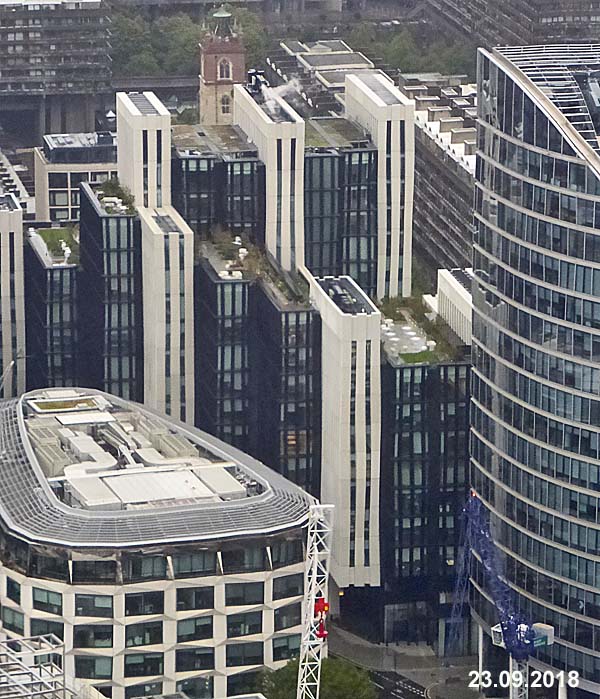 .... the whole levitating over the bridges and gardens like a hovering Rockefeller Centre." 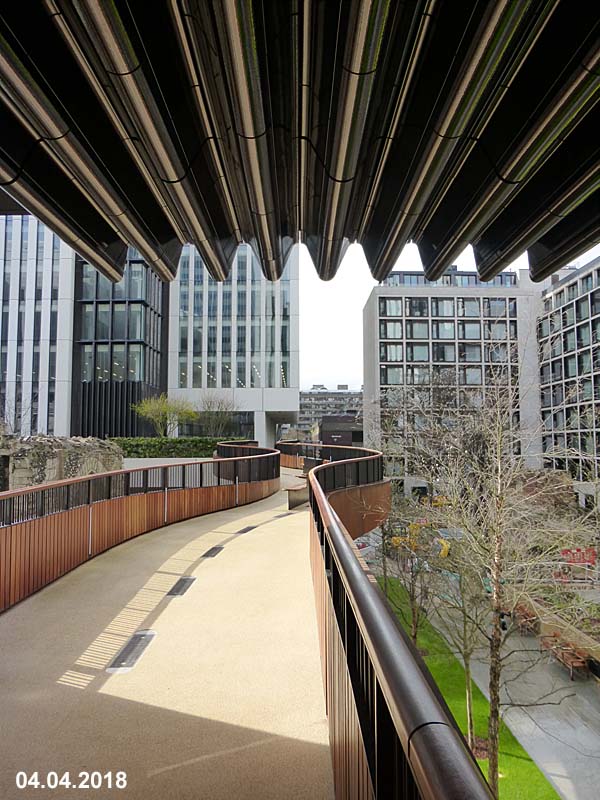 In an article,
published in the Guardian in July of
2018, Rowan Moore, reflects on the way
the project has resurrected the
adjacent Barbican's concept of streets
in the sky by adding to and
significantly enhancing the elevated
pedestrian walkways. "It
was central to Make’s design that
the stubs and relics of the
elevated walkways should be
celebrated and enhanced. It turned
out, among other things, that
those awkward residents – the
Barbican itself being the most
complete fulfilment of the pedway
dream – quite liked the ability to
get across busy roads without
having to tangle with traffic. So
the architects proposed more
bridges, not fewer, to help
reconnect the tattered network.
The new pedways are more playful
and dramatic than the rational
originals......
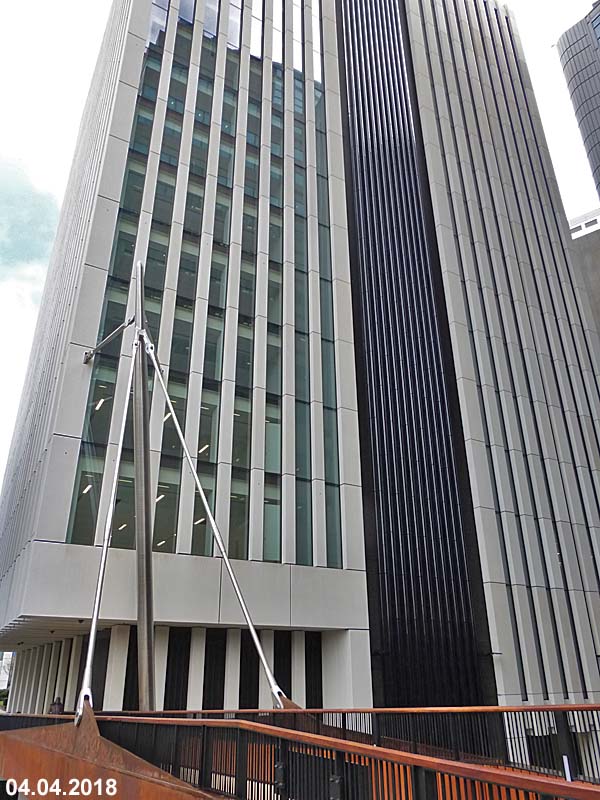 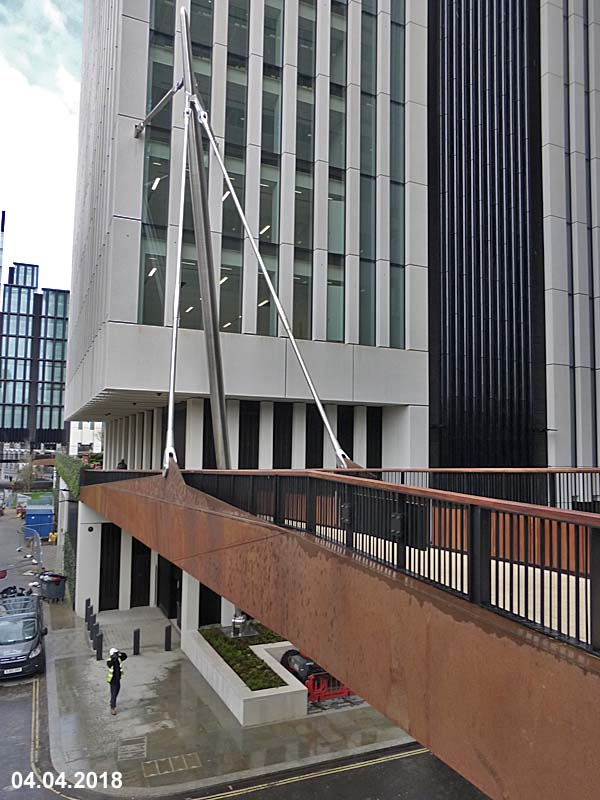 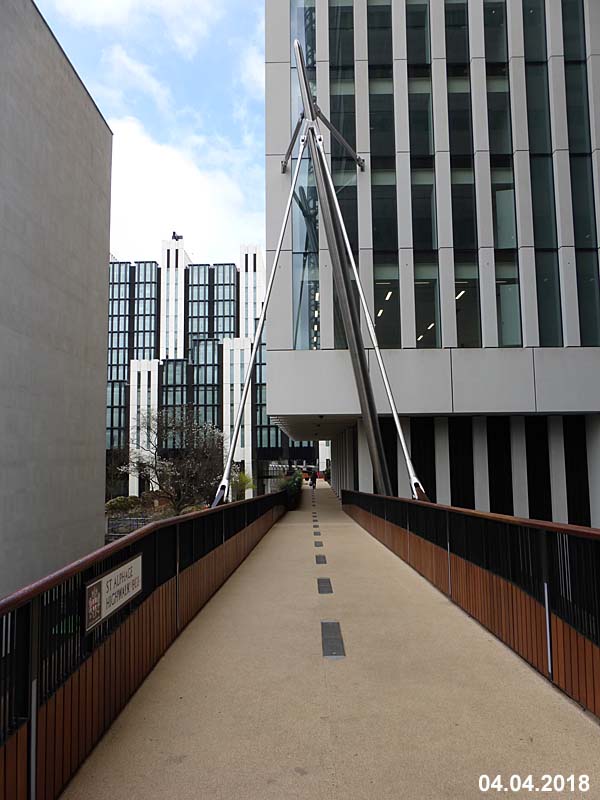 ..... They
curve and wind. They duck into the
shade of overhanging buildings and
emerge into light, .....
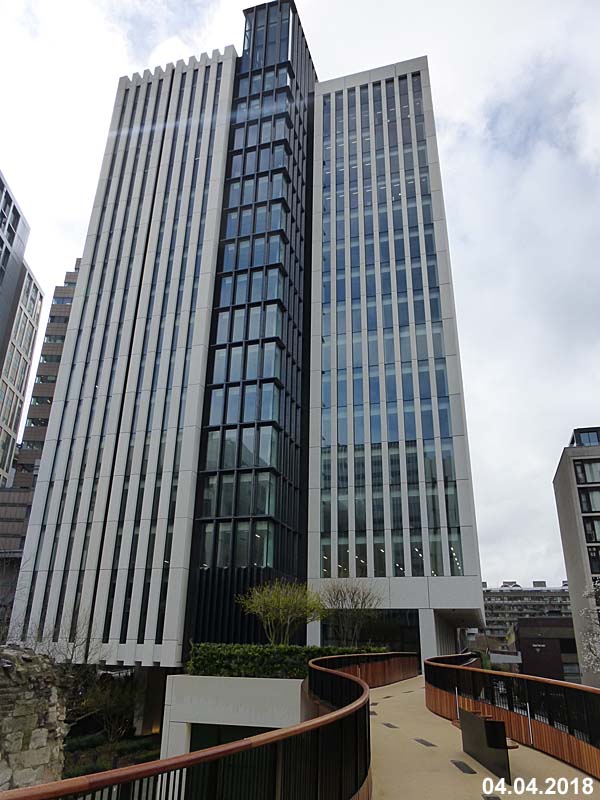 .... hover
over water and jump across roads.
....
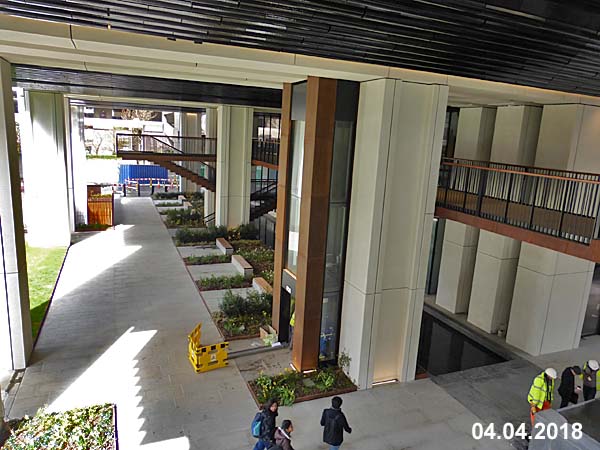 .... They are
clad in rust-coloured pre-oxidised
steel, part of a mildly
fetishistic palette of materials
that also includes ultra-white
glass-reinforced concrete and
black, ribbed expanses of faience
tiling. They are wide enough to
make room for benches in tropical
hardwood and steel .....
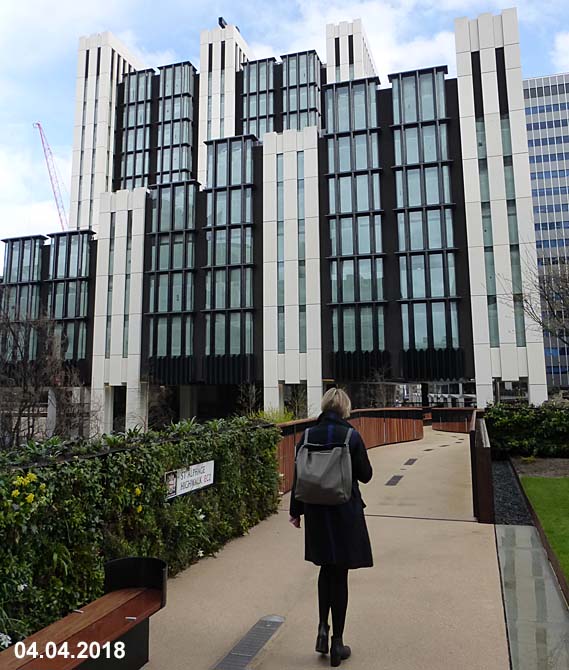 – you are supposed to “dwell” there, says Sam Potter of Make, rather than just “pass through”. 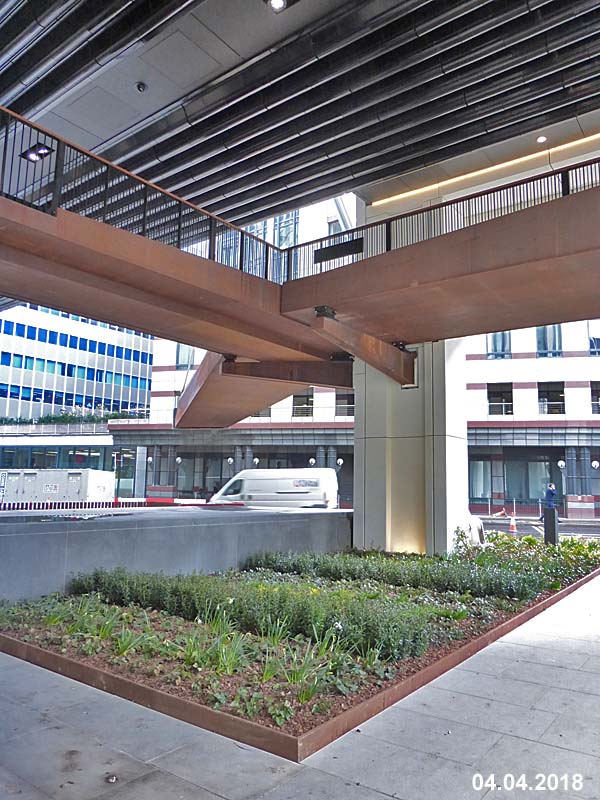 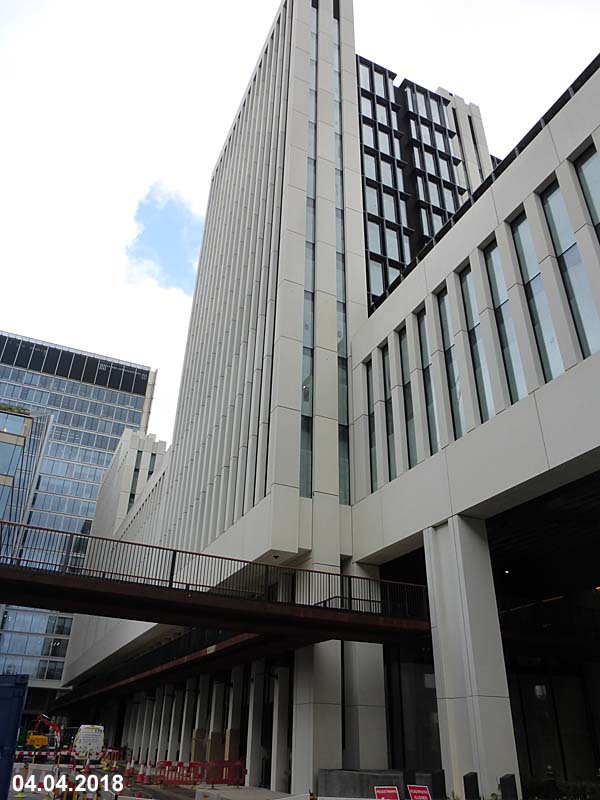 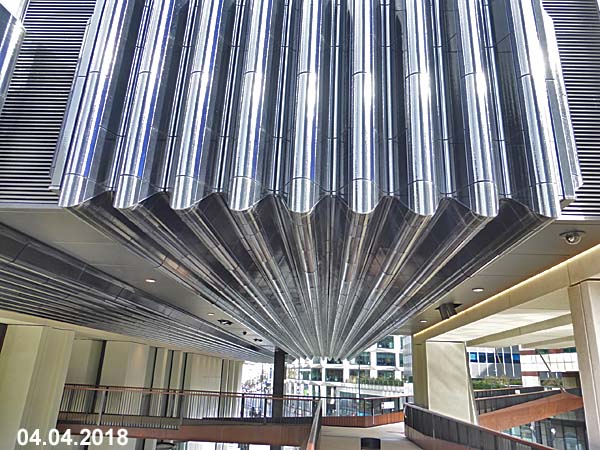 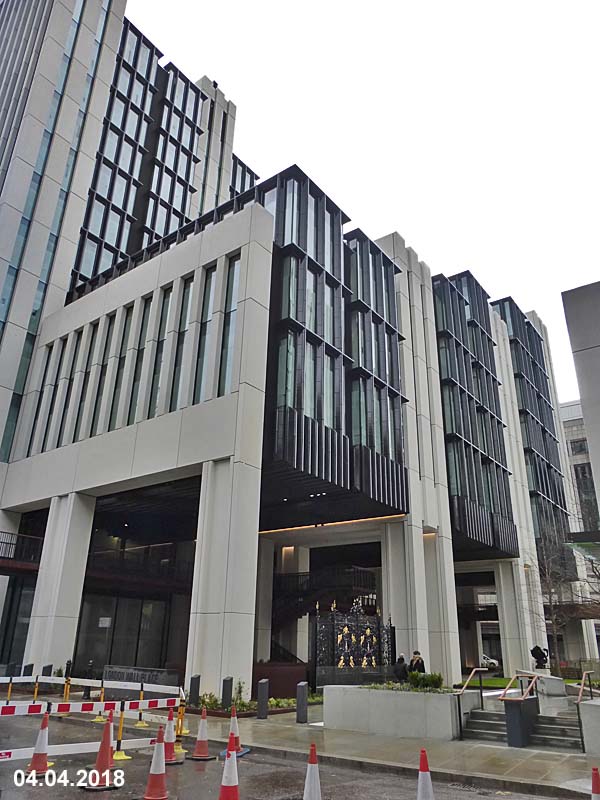 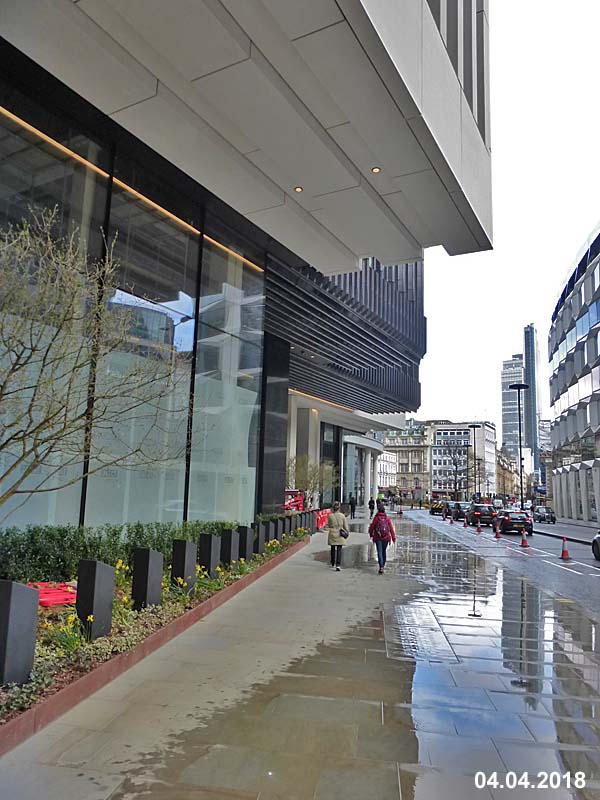 |
|
|
London
Wall Place, UK
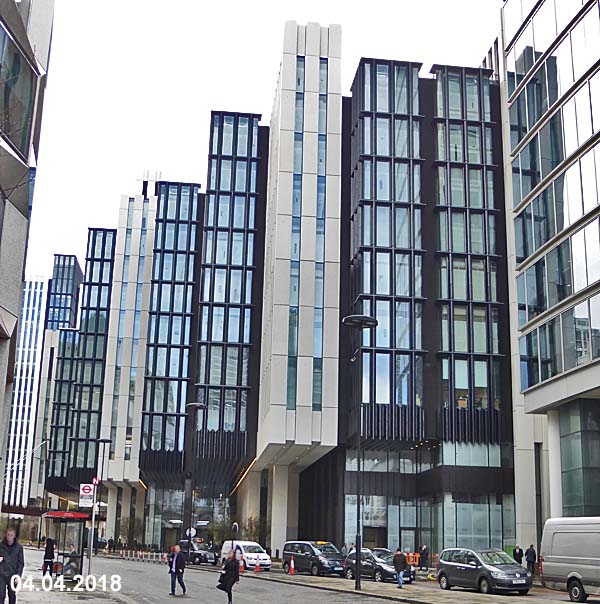
|
